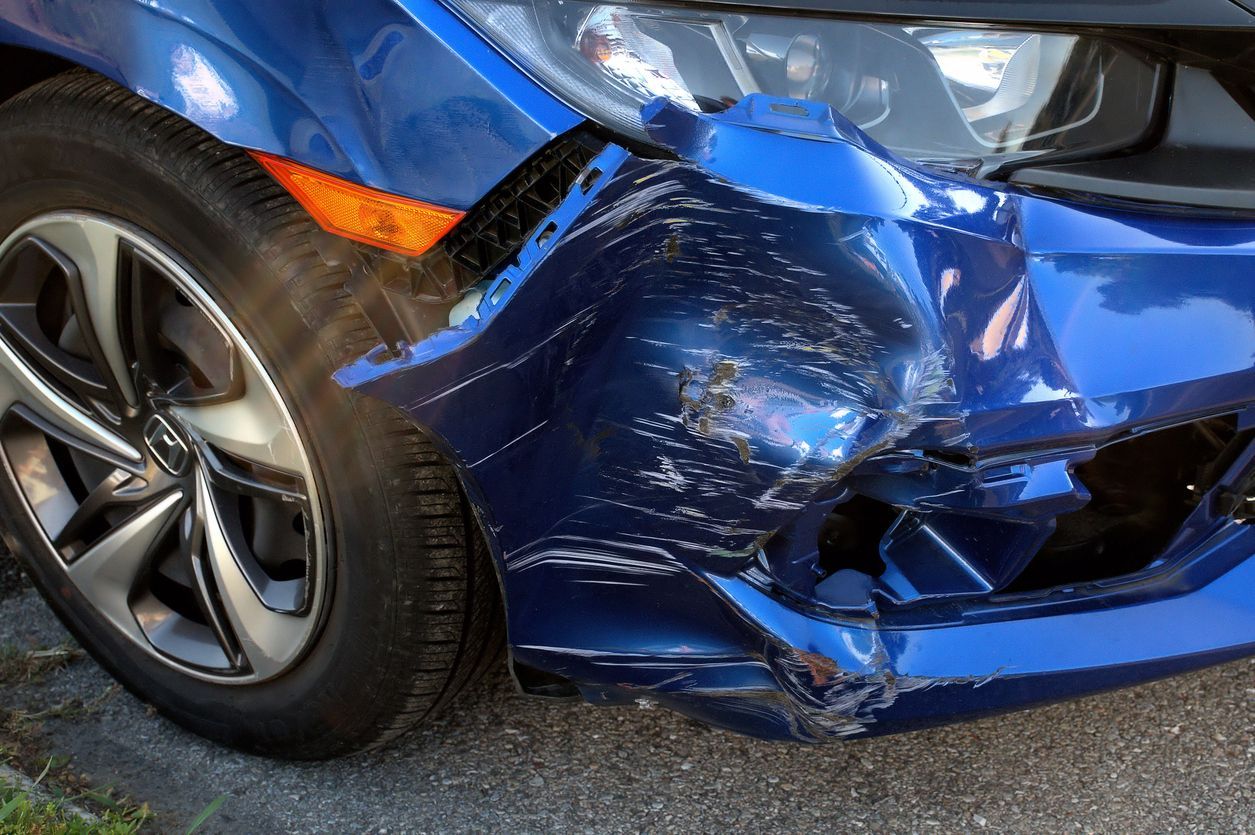Texting & Driving Laws
Finder Law Serves Clients Across Jefferson City, Columbia, and Central Missouri
Texting and driving is a dangerous behavior that continues to be a significant concern on roads across the country, including in Missouri. As smartphones become an increasingly integral part of daily life, the temptation to send a quick message while driving can be overwhelming. However, Missouri law takes a firm stance against distracted driving, particularly texting behind the wheel. This blog post will walk you through Missouri's texting and driving laws, penalties, and the risks involved with this behavior.
What is Missouri’s Texting and Driving Law?
Missouri has implemented a statewide ban on texting while driving, specifically targeting drivers of all ages. Under Missouri law, it is illegal for drivers to send, read, or write a text message while operating a vehicle. The law is designed to reduce distractions that can lead to serious accidents, injuries, and fatalities.
Key Points of Missouri’s Texting and Driving Law:
- Texting Ban for All Drivers: Missouri's texting and driving law applies to all drivers, regardless of age. This means that whether you are 16 or 60, it is illegal to use your phone to send or read text messages while driving.
- Texting While Driving: It’s important to note that texting includes sending, reading, or composing a text message, email, or instant message. This applies not only to traditional SMS texting but also to any written communication through apps like WhatsApp, Facebook Messenger, or other social media platforms.
- Use of Cell Phones: While texting is banned, Missouri law does not outright ban the use of cell phones while driving. Drivers are allowed to use their phones for hands-free communication, such as making calls or using voice-activated features. However, it is still illegal to hold your phone in your hand while driving for any purpose other than texting.
- Exceptions to the Law: There are some exceptions to the texting and driving law in Missouri. Drivers are allowed to text in the following situations:
- Emergency Situations: Drivers may text in case of an emergency, such as notifying emergency personnel of an accident or calling for roadside assistance.
- Parked or Stopped Vehicle: If a driver is safely pulled over and stopped at the side of the road (not at a stop sign or traffic light), they can use their phone for texting or other purposes.
Penalties for Violating Missouri’s Texting and Driving Law
Violating Missouri’s texting and driving law can result in fines and other consequences. The penalties are designed to deter drivers from engaging in this risky behavior and encourage safer driving practices. Here are the penalties you may face if caught texting and driving in Missouri:
- Fines
- The first offense for texting while driving is typically classified as a primary offense, meaning law enforcement officers can pull you over if they observe you texting behind the wheel. If convicted, you could face a fine of up to $200.
- For subsequent offenses, the fines may increase. If you are caught texting and driving multiple times, penalties can escalate, and the fines may rise accordingly.
- Points on Your License: In addition to fines, a conviction for texting and driving may result in points on your driving record. Accumulating too many points can lead to a suspended or revoked driver’s license.
- Possible Insurance Consequences: A texting and driving violation can also affect your car insurance premiums. Insurance companies may raise rates for drivers who have a history of distracted driving or moving violations.
- Increased Penalties for Endangering Others: If texting while driving leads to an accident that results in injury or death, the driver could face more severe legal consequences, including criminal charges such as vehicular manslaughter or reckless driving. These charges can result in much harsher penalties, including potential jail time.
The Dangers of Texting and Driving
While the law is clear, it’s important to understand why texting and driving is so dangerous. According to the National Highway Traffic Safety Administration (NHTSA), distracted driving is a leading cause of car accidents. Texting while driving significantly increases the risk of a crash because it requires the driver to take their eyes off the road, their hands off the wheel, and their mind off the task of driving.
Here are some alarming statistics that highlight the dangers of texting and driving:
- In 2021, approximately 3,140 people were killed in accidents involving distracted driving in the United States.
- Sending or reading a text message takes your eyes off the road for an average of 5 seconds. At 55 mph, that’s equivalent to driving the length of an entire football field with your eyes closed.
How to Avoid the Dangers of Texting and Driving
To stay safe and avoid legal trouble, it's best to make a habit of avoiding texting while driving altogether. Here are a few tips to help you stay focused on the road:
- Use Hands-Free Technology: Use hands-free devices such as Bluetooth or voice assistants like Siri or Google Assistant to make calls or send voice-activated messages.
- Put Your Phone Away: Keep your phone out of reach while driving. Place it in your glove compartment or center console so that you’re not tempted to check notifications.
- Pull Over Safely: If you absolutely need to send a text, find a safe place to pull over and stop before checking your phone.
- Use "Do Not Disturb" Mode: Enable your phone’s "Do Not Disturb" feature to silence incoming notifications while you’re behind the wheel.
Conclusion
Texting and driving is a serious safety concern that Missouri law aims to curb through strict regulations. While texting is illegal for all drivers in the state, it’s important to recognize the dangers of distracted driving and the potential consequences of violating the law. Remember, no text message is worth the risk of an accident, injury, or death.
If you’ve been issued a ticket for texting while driving and need help understanding the ramifications, call Finder Law today to set up a consultation. We have the experience and understanding of how this could affect your insurance rates and your driving record. With over ten years of experience practicing law in mid-Missouri, we can help you achieve the best outcome for your offense.
This blog is for informational purposes only and does not constitute legal advice. For specific guidance, please contact our office directly.












